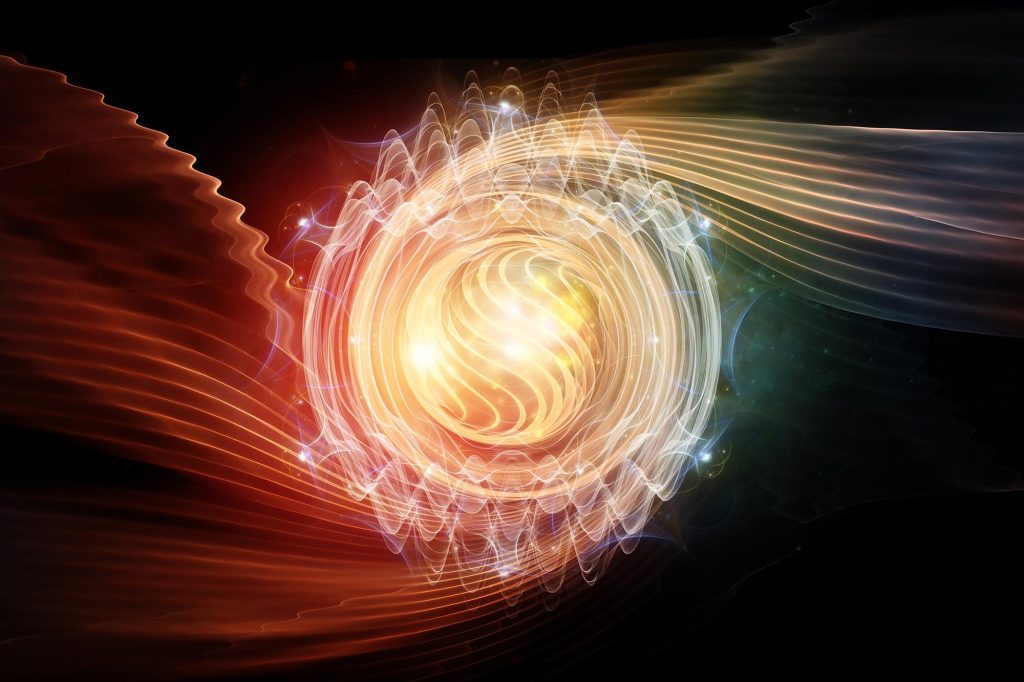

Meer dan een eeuw nadat het voor het eerst verscheen, hebben wetenschappers Einsteins huiswerk over de speciale relativiteitstheorie in elektromagnetisme voltooid.
Onderzoekers van de Universiteit van Osaka tonen de relativistische samentrekking van een elektrisch veld dat wordt gegenereerd door snel bewegende geladen deeltjes, zoals voorspeld door de theorie van Einstein, wat zou kunnen helpen bij het verbeteren van het onderzoek naar deeltjes- en stralingsfysica.
Meer dan een eeuw geleden stelde een van de beroemdste moderne natuurkundigen, Albert Einstein, de baanbrekende speciale relativiteitstheorie voor. Bijna alles wat we weten over het universum is gebaseerd op deze theorie, maar een deel ervan is nog niet experimenteel bewezen. geleerden die Universiteit van Osaka Het Institute of Laser Engineering gebruikte voor het eerst ultrasnelle elektro-optische metingen om de samentrekking van het elektrische veld rond een elektronenstraal die met bijna de snelheid van het licht reist te visualiseren en om het generatieproces te demonstreren.
Volgens de speciale relativiteitstheorie van Einstein moet men de “Lorentz-transformatie” gebruiken, die de coördinaten van ruimte en tijd combineert om de beweging te beschrijven van objecten die een waarnemer passeren met een snelheid die de snelheid van het licht benadert. Hij kon uitleggen hoe deze transformaties leidden tot zelfconsistente vergelijkingen van elektrische en magnetische velden.
Terwijl de verschillende effecten van relativiteit vele malen zijn bewezen met een zeer hoge mate van experimenteren[{” attribute=””>accuracy, there are still parts of relativity that have yet to be revealed in experiments. Ironically, one of these is the contraction of the electric field, which is represented as a special relativity phenomenon in electromagnetism.

Illustration of the formation process of the planar electric field contraction that accompanies the propagation of a near-light-speed electron beam (shown as an ellipse in the figure). Credit: Masato Ota, Makoto Nakajima
Now, the research team at Osaka University has demonstrated this effect experimentally for the first time. They accomplished this feat by measuring the profile of the Coulomb field in space and time around a high-energy electron beam generated by a linear particle accelerator. Using ultrafast electro-optic sampling, they were able to record the electric field with extremely high temporal resolution.
It has been reported that the Lorentz transformations of time and space as well as those of energy and momentum were demonstrated by time dilation experiments and rest mass energy experiments, respectively. Here, the team looked at a similar relativistic effect called electric-field contraction, which corresponds to the Lorentz transformation of electromagnetic potentials.
“We visualized the contraction of an electric field around an electron beam propagating close to the speed of light,” says Professor Makoto Nakajima, the project leader. In addition, the team observed the process of electric-field contraction right after the electron beam passed through a metal boundary.
When developing the theory of relativity, it is said that Einstein used thought experiments to imagine what it would be like to ride on a wave of light. “There is something poetic about demonstrating the relativistic effect of electric fields more than 100 years after Einstein predicted it,” says Professor Nakajima. “Electric fields were a crucial element in the formation of the theory of relativity in the first place.”
This research, with observations matching closely to Einstein’s predictions of special relativity in electromagnetism, can serve as a platform for measurements of energetic particle beams and other experiments in high-energy physics.
Reference: “Ultrafast visualization of an electric field under the Lorentz transformation” by Masato Ota, Koichi Kan, Soichiro Komada, Youwei Wang, Verdad C. Agulto, Valynn Katrine Mag-usara, Yasunobu Arikawa, Makoto R. Asakawa, Youichi Sakawa, Tatsunosuke Matsui and Makoto Nakajima, 20 October 2022, Nature Physics.
DOI: 10.1038/s41567-022-01767-w
The study was funded by the Japan Society for the Promotion of Science and the NIFS Collaborative Research Program.

Social media fanatic. Avid bacon fanatic. Wannabe pop culture fan. Communicator. Certified writer.




More Stories
‘Rimpels’ van de Melkweg onthullen een verbluffende recente botsing, die astrofysici choqueert
Een van de continenten van de aarde is aan het stijgen, en de mondiale impact zou enorm kunnen zijn
Wanneer zullen de astronauten lanceren?